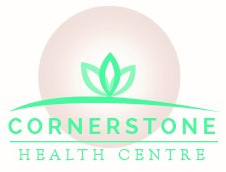
Compression of the lumbar spine nerve root may trigger pain and/or weakness for some spinal stenosis and disc herniation patients. Younger patients tend to respond more quickly to both surgical and non-surgical treatment. (1) That makes sense as the nerve has not been inflamed as long. Disc herniations are more likely to arise in our 30’s and 50’s. Luckily, only 3% to 6% of those are symptomatic. Spinal stenosis tends to be a nuisance for us in our 50’s and 60’s. Muscle weakness is found in as many as 30% to 50% of disc herniation patients. 80% of disc herniation patients with weakness demonstrate improvement with 6 weeks of non-operative care, 90% at 12 weeks, 93% at 24 weeks. Surgical patients discover that the most clinically significant weakness improvement came within 6 weeks of spine surgery for a disc herniation. 66% of these patients showed no improvement after that. (Ghahreman in 1) Improvement in motor power can take up to two years post surgery. Some sensory loss is normal but barely conspicuous. (1) BONUS: The cost of chiropractic care for a lumbar disc herniation only accounted for 2% of all the money spent, so the researchers urged a trial of conservative, non-operative care before patients undergo back surgery for a herniated disc. (2) Bring your Georgetown back pain and related muscle weakness to Dr. Butwell for Georgetown non-surgical care at the outset.
Listen to this PODCAST with Dr. Dean Greenwood on The Back Doctor’s Podcast with Dr. Michael Johnson about a patient with muscle weakness due to a synovial cyst that improved with chiropractic care utilizing the Cox® Technic System.

Maintaining strong bones is important, and vitamin C can help! Osteoclasts are bone cells that decay bone tissue. Vitamin C blocks them from doing that. Osteoblasts are cells that connect bone while bone takes shape. Vitamin C fosters bone regeneration by promoting osteoblast creation. (3) Fruits and vegetables are excellent sources of vitamin C. They are packed with antioxidants known to impact bone quality. In a new report, vitamin C increased the density of the L5 vertebra! (4) That is a benefit your Georgetown spine specialist loves to hear! Get your vitamin C every day! Eat, or supplement! Let’s chat at your next Georgetown chiropractic appointment.
CONTACT Dr. Butwell
Schedule your Georgetown chiropractic appointment. Dr. Butwell is here to help you regain your muscle loss and develop your bones! Thank you for entrusting your spine’s health to Dr. Butwell!
